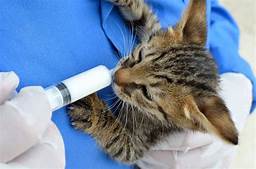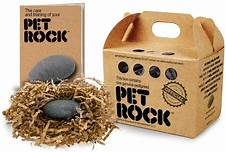How to Become a Pet Nutritionist
If you're passionate about animals and nutrition, a career as a pet nutritionist could be the perfect fit for you. Pet nutritionists are responsible for developing and implementing nutrition plans for pets, ensuring they receive the proper nutrients to stay healthy and thrive. Let's explore the steps on how to become a pet nutritionist.

Education
1. Earn a Bachelor's Degree:
Most pet nutritionist positions require a bachelor's degree in animal science, nutrition, or a related field. Courses in animal anatomy, physiology, nutrition, and biochemistry are typically required.
2. Consider a Master's Degree:
A master's degree in animal nutrition or a related field can provide you with more in-depth knowledge and specialization in pet nutrition.
Experience and Training
1. Internships and Volunteer Work:
Gaining practical experience through internships, volunteer work, or part-time jobs in animal care or nutrition can help you develop your skills and knowledge in the field.
2. Work as a Veterinary Technician or Assistant:
Working in a veterinary clinic or animal hospital can provide valuable insights into animal care and nutrition while allowing you to collaborate with veterinarians and pet owners.
3. Attend Pet Nutrition Courses and Workshops:
Keep up with the latest advancements in pet nutrition by attending courses, workshops, and conferences to further enhance your knowledge and skills.
Credentials and Certifications
1. Consider Professional Certification:
The American Academy of Veterinary Nutrition (AAVN) offers the Certified Veterinary Nutritionist (CVN) credential, which demonstrates your expertise in animal nutrition.
2. Maintain Continuing Education:
To maintain your credentials or stay current in the field, consider ongoing education and professional development opportunities to stay informed about the latest research, trends, and advancements in pet nutrition.
Build Your Network
1. Attend Industry Events:
Participating in pet nutrition conferences, seminars, and workshops can help you connect with other professionals, learn from experts, and stay updated on the latest research and trends.
2. Join Professional Organizations:
Becoming a member of professional organizations, such as the AAVN or the Pet Food Institute (PFI), can provide networking opportunities, access to industry resources, and opportunities for professional development.
Develop Your Communication Skills
1. Master Effective Communication:
Pet nutritionists often work with veterinarians, pet owners, and other professionals. Excellent communication skills, both written and verbal, are crucial for effectively conveying complex nutritional information and answering questions.
2. Stay Current with Industry Trends:
Keep up with the latest news, research, and trends in pet nutrition through industry publications, online resources, and attending conferences to stay informed and provide the most accurate and up-to-date advice to clients.
Build Your Practice
1. Start Your Own Pet Nutrition Business:
If you have the entrepreneurial spirit, consider starting your own pet nutrition consulting business. This allows you to work independently, set your own hours, and tailor your services to meet the specific needs of your clients.
2. Collaborate with Veterinarians and Pet Care Professionals:
Work in collaboration with veterinarians, animal shelters, and pet care facilities to provide nutritional advice and guidance to their clients. Building strong relationships with these professionals can help expand your network and increase your client base.
3. Provide Exceptional Customer Service:
Provide excellent customer service by being responsive, patient, and understanding of your clients' concerns and needs. Establishing trust and rapport with pet owners is crucial for building a successful pet nutrition practice.
In conclusion, becoming a pet nutritionist requires a combination of education, experience, and a passion for animal health and nutrition. By following these steps and continuously learning and adapting to new information, you can establish a rewarding career in this growing field and make a positive impact on the lives of pets and their owners.Declaration: All article resources on this website, unless otherwise specified or labeled, are collected from online resources. If the content on this website infringes on the legitimate rights and interests of the original author, you can contact this website to delete it.





